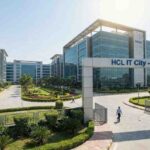Meerut, 2025 – A city with a rich history and a rapidly growing urban landscape, Meerut finds itself at a critical juncture. As policymakers push forward with development initiatives, concerns are emerging about whether the perspectives and needs of the city’s younger generations are being adequately considered in shaping its future. With a population where over 35% are under 25, according to the Census of India, the voices of youth remain vital to sustainable growth and social progress.
Youth Demographics and Challenges
Data from the Uttar Pradesh Planning Department highlights that Meerut’s youth demographic is one of its most significant assets. However, the State Development Report reveals several barriers that hinder young residents’ engagement in decision-making:
- Education and Employment Gaps: The Ministry of Skill Development and Entrepreneurship reports that only 45% of Meerut’s youth have access to vocational training or skill-based education, limiting their employability in key sectors.
- Limited Civic Participation: A survey by the Meerut Municipal Corporation shows that only 18% of residents aged 18-25 actively participate in public consultations or local governance initiatives.
- Urban Inequities: The Uttar Pradesh State Urban Development Authority identifies disparities in access to recreational spaces, educational institutions, and healthcare services, disproportionately affecting youth in underserved areas.
Voices of the Youth
Despite these challenges, Meerut’s youth have expressed a clear desire for greater involvement in shaping the city’s policies and development strategies. Initiatives such as youth town halls organized by the National Service Scheme (NSS) have brought pressing issues to light, including the need for better public transport, mental health resources, and job opportunities in non-traditional sectors like technology and arts.
One local survey by the Meerut Youth Collective found that 72% of young respondents felt that their opinions were overlooked in urban planning decisions, while 64% expressed dissatisfaction with the quality of education and infrastructure in the city.
Government Initiatives: Progress or Pitfalls?
The government has introduced programs to address some concerns. The Skill India Mission has launched targeted vocational training programs in Meerut, focusing on industries like manufacturing and IT. Similarly, the Smart Cities Mission has allocated funds to improve urban infrastructure, including the development of tech-enabled libraries and co-working spaces aimed at engaging young professionals.
However, critics argue that these initiatives often fail to involve youth in the planning and execution stages. According to a review by the Institute for Urban Development Studies, the lack of participatory governance limits the effectiveness of such programs.
Building a Youth-Inclusive Future
Experts emphasize the importance of integrating youth perspectives into the decision-making process. Key recommendations include:
- Participatory Governance Models: Create platforms like youth advisory councils within local government structures to ensure their voices are heard.
- Education Reform: Expand access to skill development programs and revamp school curriculums to align with future job market demands.
- Civic Engagement Campaigns: Promote youth participation in urban planning through awareness drives and incentive-based programs.
- Equity in Urban Services: Ensure all youth, regardless of socioeconomic background, have access to quality education, healthcare, and recreational facilities.
Conclusion
Meerut’s youth hold the potential to drive the city’s development and innovation. However, their exclusion from decision-making processes risks alienating a vital demographic and undermining the city’s long-term progress. The challenge ahead is clear: Will Meerut’s leadership actively involve its younger generations, or will their voices continue to be overlooked in shaping the city’s future?




























